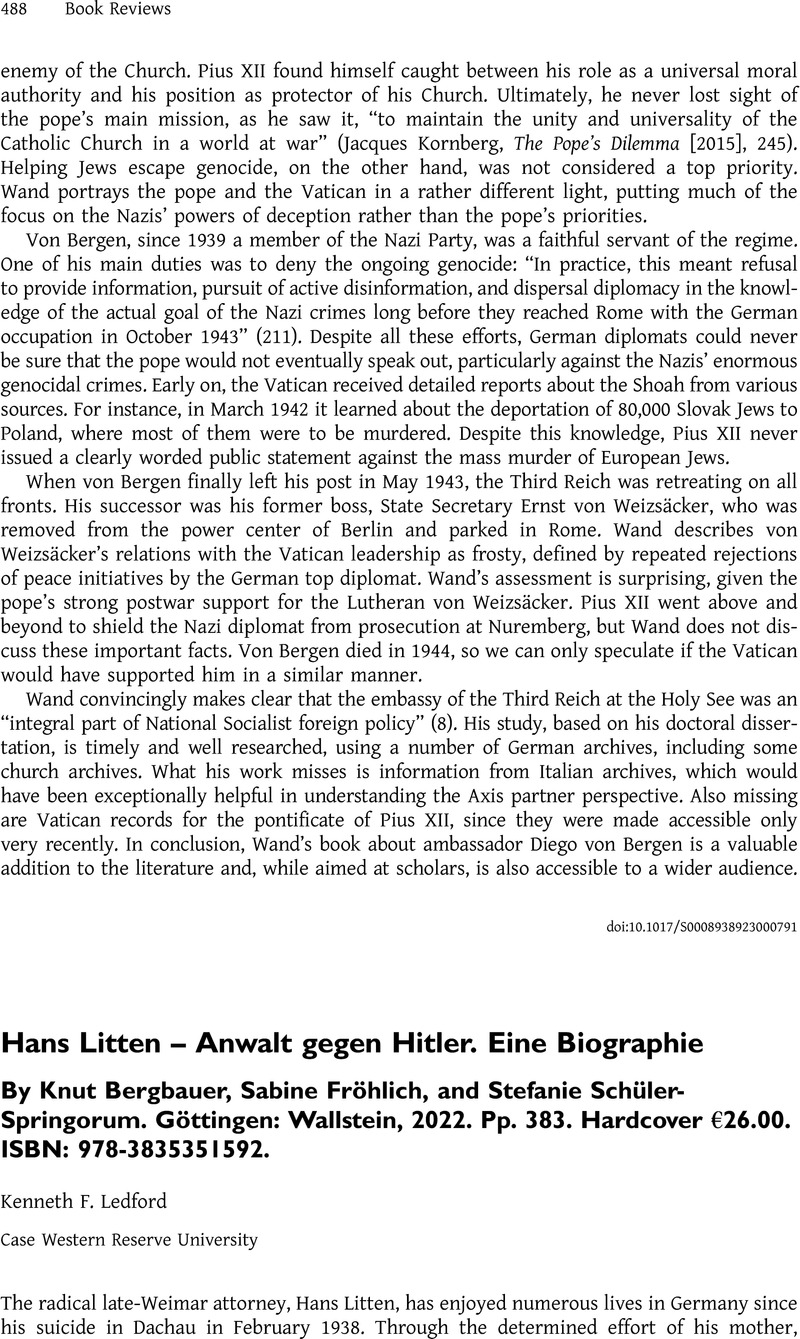No CrossRef data available.
Article contents
Hans Litten – Anwalt gegen Hitler. Eine Biographie By Knut Bergbauer, Sabine Fröhlich, and Stefanie Schüler-Springorum. Göttingen: Wallstein, 2022. Pp. 383. Hardcover €26.00. ISBN: 978-3835351592.
Review products
Hans Litten – Anwalt gegen Hitler. Eine Biographie By Knut Bergbauer, Sabine Fröhlich, and Stefanie Schüler-Springorum. Göttingen: Wallstein, 2022. Pp. 383. Hardcover €26.00. ISBN: 978-3835351592.
Published online by Cambridge University Press: 08 November 2023
Abstract
An abstract is not available for this content so a preview has been provided. Please use the Get access link above for information on how to access this content.

- Type
- Book Review
- Information
- Copyright
- Copyright © The Author(s), 2023. Published by Cambridge University Press on behalf of Central European History Society of the American Historical Association


